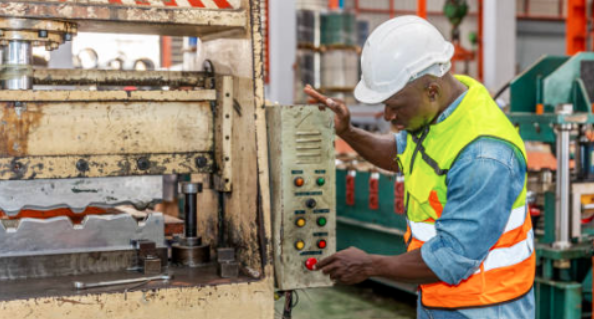
Posted on Monday, September 30, 2024
To operate roll forming machines, particularly in industrial settings where safety and regulatory compliance are priorities, certain certifications and qualifications are typically required. Here’s an overview of the key certifications and training programs that businesses should consider:
In the United States, OSHA provides standards for machine safety, including roll forming machines. Operators may need OSHA’s General Industry Safety Certification, which focuses on machine operation safety protocols, lockout/tagout procedures, and personal protective equipment (PPE) guidelines. This is vital for ensuring workplace safety and minimizing the risk of accidents.
Manufacturers of roll forming machines often provide specialized training programs for their equipment. These programs cover the technical aspects of machine operation, including setup, troubleshooting, and routine maintenance. Certification from the manufacturer can demonstrate competency and ensure the machine is operated according to its specifications.
Roll forming operations often require moving heavy metal coils or sheets, so operators may also need certification in material handling, including forklift operation. OSHA’s Powered Industrial Truck (Forklift) certification is a common requirement for operators involved in moving and staging materials.
For operators involved in machine maintenance or troubleshooting, certifications in electrical or mechanical fields can be valuable. Nationally recognized programs like those from the National Institute for Metalworking Skills (NIMS) or trade school certifications in mechanical and electrical systems may be beneficial.
In any manufacturing environment, it’s a good practice for machine operators to have basic first aid and CPR certification. In case of an accident, having trained personnel on hand can make a significant difference in emergency response.
For companies operating under ISO standards, ensuring that operators are familiar with relevant ISO standards (e.g., ISO 9001 for Quality Management) can help maintain product quality and regulatory compliance. This certification isn't necessarily for operators but could be required as part of broader compliance efforts.
By obtaining the right certifications, businesses can ensure the safety of their operators and maintain compliance with industry regulations, ultimately enhancing productivity and reducing workplace accidents.
4orequestAnimationFrame((function(){window.__oai_logTTI?window.__oai_logTTI():window.__oai_SSR_TTI=window.__oai_SSR_TTI??Date.now()}))

Used Purlin Roll Forming Machines for Sale Worldwide
Posted on Sunday, January 25, 2026
Pre-Owned Roll Forming Machines for Purlin & Structural Steel Profiles

Used Roof Panel Roll Forming Machines for Sale Worldwide
Posted on Sunday, January 25, 2026
Pre-Owned Roll Forming Machines for Roofing Panel Production

Used Roll Forming Machines for Sale Worldwide
Posted on Tuesday, January 20, 2026
Pre-Owned Roll Forming Machines with Inspection, Verification & Global Support

Steel Coil Supply for Roll Forming Machines Worldwide
Posted on Tuesday, January 20, 2026
Reliable Steel Coil Supply for Roll Forming, Fabrication & Manufacturing Applications
Copyright 2026 © Machine Matcher.